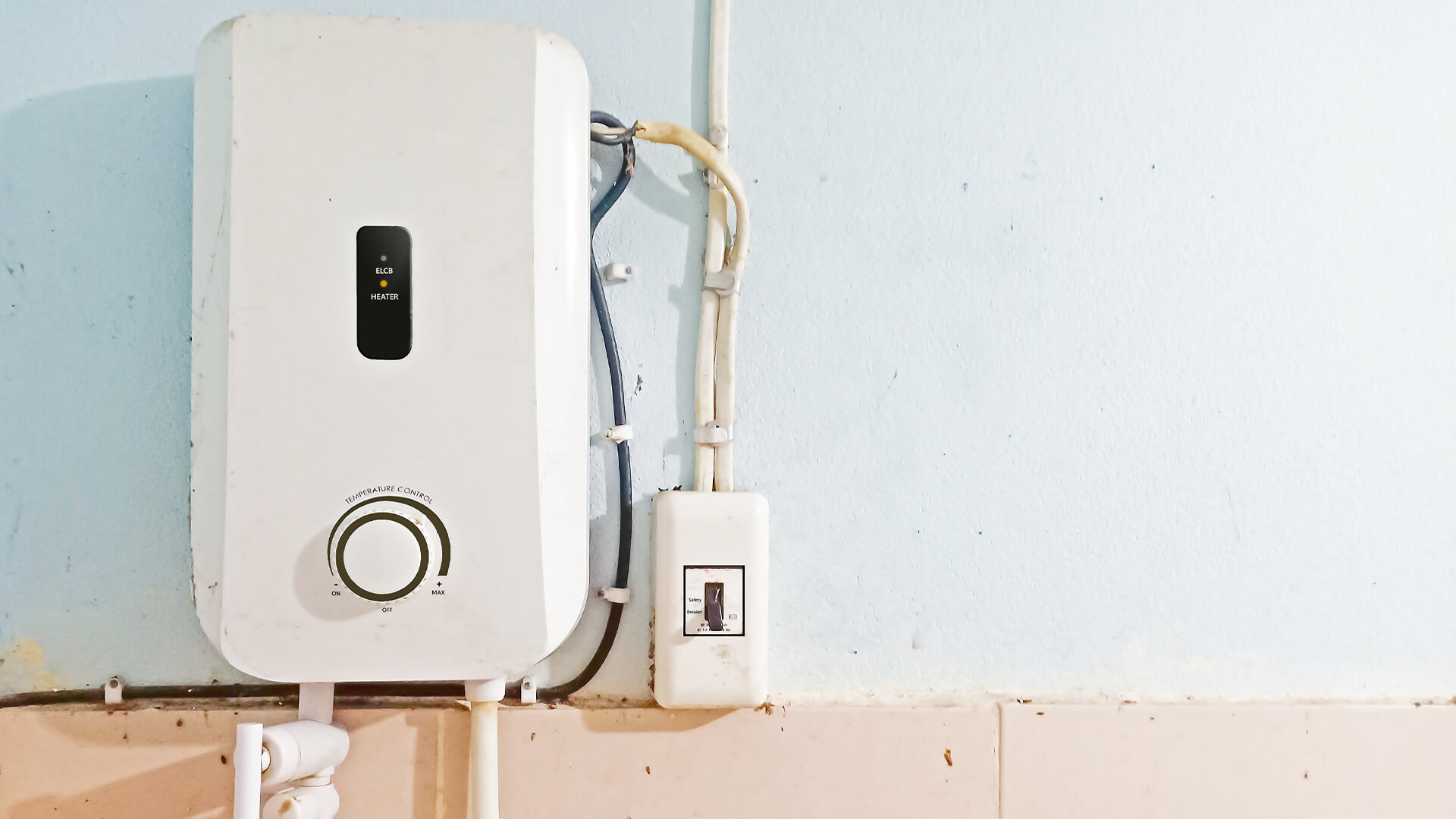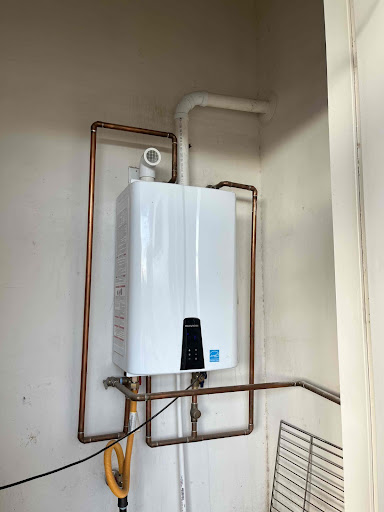What are your thoughts on Six Benefits of a Tankless Hot Water Heater?

In a globe where convenience and efficiency reign supreme, it's no surprise that homeowners are regularly on the lookout for smarter means to manage their home's energy usage and comfort. One innovation that has actually steadily gotten appeal is the tankless hot water heater. Yet what exactly makes these systems stand apart from the traditional tank-based models the majority of us grew up with? Let's dive in and check out the advantages of tankless hot water heater, helping you make a decision if it's time to make the button in your home.
Introduction
Picture this: you step into the shower after a long day, expecting a soothing cascade of warm water, just to be welcomed by icy beads due to the fact that the last person used everything up. Noise familiar? Standard water heaters keep a fixed quantity of hot water, meaning you go to the mercy of that tank's supply. Tankless systems, on the other hand, heat water as needed. No more running out mid-shower, say goodbye to fumbling with routines simply to make sure warm water is readily available.
Comprehending Tankless Hot Water Heater
What Are Tankless Water Heaters?
Tankless water heaters, often called on-demand or immediate water heaters, supply warm water just as it's required. Rather than keeping gallons of pre-heated water, these systems kick right into action the minute you activate the faucet. Water goes through a warm exchanger, heating up in real-time, meaning you get an uninterrupted circulation of hot water without the demand for a huge container sitting lazily by.
Just how Do They Differ from Conventional Equipments?
Conventional heating systems hold a tank of hot water, utilizing power to maintain that storage tank at a constant temperature. Tankless devices eliminate the standing supply, minimizing thrown away power and the bulky footprint of a large cylinder. Essentially, you're upgrading from a "accumulation" mindset to a "made-to-order" method.
Typical Types of Tankless Systems
Tankless water heaters normally come in 2 varieties: gas and electrical. Gas designs often tend to deliver greater circulation rates, perfect for larger families, while electrical models commonly serve smaller homes and are normally much easier to set up. In addition, some systems are created for point-of-use (serving one fixture) while others can take care of the whole home's hot water needs.
Trick Advantages of Tankless Hot Water Heater
Power Performance and Price Cost Savings
Say goodbye to heating up a titan tank's well worth of water and keeping it cozy throughout the day. Tankless heaters minimize standby power losses, which can lower energy costs. While the initial expense may be greater, the lasting savings usually warrant the investment.
3. Space-Saving Design
If your home is short on storage, eliminating the bulky tank frees up important room. Tankless systems are compact and can commonly be placed on wall surfaces, hidden in edges, or set up in limited utility wardrobes without hogging the whole room.
4. Longer Life expectancy
A well-kept tankless hot water heater can outlast its tank-based relative. Standard storage tanks might last 10-15 years, while tankless models can maintain downing along for twenty years or more, making them a strong investment in time.
1. Countless Hot Water Supply
Ever before needed to arrange showers so every person gets their reasonable share of warm water? With tankless, that becomes a thing of the past. As long as the heating system's circulation capacity isn't surpassed, you can take back-to-back showers without developing into a popsicle.
5. Improved Water Quality
Keeping water in a tank can often bring about debris buildup or a slightly "off" taste. With tankless systems, fresh water is heated right away, reducing the opportunities of debris build-up and potentially supplying cleaner-tasting water.
Considerations Prior To Changing
Though the advantages are engaging, it's smart to think about a couple of aspects before fully dedicating.
Evaluating Your Home's Water Use Patterns
If your home at the same time uses multiple components with high warm water need, ensure the device's circulation rate satisfies your requirements. Understanding your usage patterns helps you pick the right size and kind of tankless heating unit.
Upkeep and Care Tips
Tankless systems are fairly low maintenance, yet they aren't set-it-and-forget-it appliances.
Routine Cleansing and Descaling
Hard water minerals can develop in the warmth exchanger, influencing efficiency. Regular descaling (often recommended every year) maintains the unit performing at peak performance.
Annual Expert Examinations
A yearly checkup from a professional ensures small concerns are caught early. They'll assess the unit's efficiency, try to find leaks, and aid keep optimal effectiveness.
Initial Investment Expenses
Tankless heaters typically include a greater in advance price. Between the device itself and potential setup modifications, the preliminary price might provide you sticker label shock. But keep in mind to watch it as a long-term investment.
Setup Needs
Depending on your home's facilities, you may require added electric capacity or gas line upgrades. Ensure you comprehend the setup requirements and talk to a specialist to avoid surprises.
Making Certain Proper Ventilation
For gas designs, correct air flow is necessary to safely get rid of exhaust gases. See to it airing vent systems are clean and correctly installed to avoid any type of prospective security threats.
Contrasting Different Brands and Versions
Not all tankless hot water heater are produced equal.
Looking Into Reliable Producers
Seek reputable brands with a history of creating quality units. A reliable maker frequently gives better consumer support and longer service warranties.
Installation: DIY or Specialist?
While some house owners relish dealing with jobs themselves, tankless setup may not be the very best time to break out the tool kit.
Benefits and drawbacks of Do It Yourself Installment
A DIY set up can conserve cash, but it comes with threats. Wrong installment can lead to ineffectiveness or security worries. If you come in handy and have experience, it could be feasible-- yet wage care.
Reviewing Evaluations and Individual Responses
Individual evaluations and feedback from next-door neighbors or pals that have actually gone tankless can provide valuable insights. Sometimes, real-life experiences can be more telling than marketing brochures.
When to Call a Specialist Plumbing
For the majority of, calling a professional guarantees everything's done correctly. A specialist plumbing technician recognizes regional codes, sizing needs, and venting criteria, reducing the danger of problems.
Making best use of Efficiency
You've purchased a tankless device-- currently optimize its efficiency.
Optimum Temperature Level Setups
Many people set their systems between 120-140 F. Changing the temperature level can boost convenience and cost savings. Experiment to discover a wonderful area that does not lose power.
Pairing with Low-Flow Fixtures
Want to stretch your device's capacities? Consider setting up low-flow showerheads and faucets. They minimize water usage, permitting your tankless system to deliver a constant stream of warm water without straining.
Environmental Effect
Tankless hot water heater line up with greener living goals.
Reduced Carbon Footprint
By using much less power and only home heating water as needed, tankless systems can decrease your home's carbon footprint, minimizing your ecological impact.
Saving Natural Resources
Much less power intake and less lost warm water translate into fewer natural resources being utilized, an ecological win-win.
That Profits Most from Tankless Heating units?
The appeal of tankless heaters is that they can fit a range of families.
Big Households vs. Solitary Passengers
Huge family members might enjoy the unlimited warm water supply, while single passengers value the power financial savings from not heating up a whole tank for simply a single person's early morning shower.
Homeowners with Restricted Area
If your home is short on square video, shedding the cumbersome tank maximizes area for various other essentials-- or maybe just a lot more elbow room.
Eco-Conscious Customers
Going tankless aligns with environmentally friendly values, ensuring you're not losing power or sources.
Future Trends in Tankless Water Heaters
The world of home appliances is ever-evolving, and tankless water heaters are no exception.
Advancements in Technology
R&D is continuously improving warm exchangers, making systems much more efficient and sturdy. Future versions may be even quieter, more compact, and far better fit for varying climates.
Smart Home Assimilation
Envision changing your hot water heater's temperature level through an app or getting maintenance signals on your phone. As wise home technology developments, we'll see more connection and benefit.
Verdict
Choosing a tankless hot water heater is more than just updating your home's hot water system; it's purchasing lasting comfort, power effectiveness, and a greener lifestyle. By considering your house's water usage, being mindful of installation demands, and committing to routine upkeep, you can appreciate a stable stream of hot water without the luggage of a large container. As modern technology progresses, you can eagerly anticipate even smarter, a lot more reliable tankless options that not just make your life simpler however likewise profit the earth.
5 Benefits of Tankless Water Heaters
Save Valuable Space
Since tankless water heaters do not have a massive 40+ gallon tank of water, they are considerably smaller and can fit in more narrow spaces in your home.
If you are working with limited square footage, a tankless water heater will still provide you with the hot water you need while taking up significantly less space in your home. While the exact size of a tankless water heater varies depending on the brand, some are as small as a carry-on suitcase.
Endless Supply of Hot Water
While a traditional water heater preheats and stores your water in the tank, tankless water heaters do not rely on a reservoir system.
This means that they do not run out of hot water like traditional water heaters since they make hot water as needed. Traditional water heaters need to stop and reheat water when the tank inevitably runs out, but tankless water heaters do not have this issue.
Provide Warm Water On-Demand
As mentioned above, tankless water heaters do not preheat a certain amount of water and then store it in a massive tank to be used later. An advantage of installing a tankless water heater includes water being heated instantly whenever you turn on the faucet.
When you turn on the water, it will travel through a heat exchanger in the unit and be heated with either an electric element or a natural gas burner. Gone are the days of having to ration out your hot water to make sure that you do not run out.
Longer Life Cycle
Not only do tankless water heaters provide an endless supply of hot water for your home whenever you want it, but these units tend to have a longer lifespan than water heaters with tanks.
Tanked water heaters have an average lifespan of around 10 years, as the tank is prone to corrosion, leading to serious issues. In comparison, tankless water heaters can last for around 15 to 20 years with the proper maintenance and tune-ups.
Energy Efficient
Compared to traditional water heaters, tankless water heaters are a more energy-efficient water heating option for your home. Tank water heaters must heat and reheat the water stored in the tank throughout the day, even if you are not home.
This energy use adds up over time, leading to an increase in your energy bills and added strain on your unit. A benefit of buying a tankless water heater includes saving money since it only operates when you turn on the hot water. Since it only heats up as needed, this can decrease your energy bills and save you money in the long run.
https://callrandazzo.com/blog/5-benefits-of-tankless-water-heaters/

Do you like reading about Why You Should Consider a Tankless Water Heater? Give a remark directly below. We'd be delighted to know your feelings about this blog post. We are looking forward to see you back again later on. In case you enjoyed our blog post please don't forget to pass it around. I love your readership.
Get Estimate